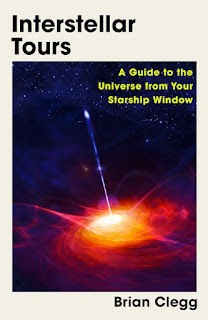Science fact with a touch of fiction
 As a science writer, I'm always trying to find ways to make science more approachable. When I recently interviewed teacher and science communicator Alom Shaha, he suggested that being brought up in a family and with teachers who had a positive attitude to science - and who considered it fun, not a chore - had a significant impact. Inevitably this means that the old C. P. Snow 'two cultures' thing rears its head.
As a science writer, I'm always trying to find ways to make science more approachable. When I recently interviewed teacher and science communicator Alom Shaha, he suggested that being brought up in a family and with teachers who had a positive attitude to science - and who considered it fun, not a chore - had a significant impact. Inevitably this means that the old C. P. Snow 'two cultures' thing rears its head.I brought the two cultures into an article for the Royal Literary Fund on why I thought science fiction is considered not to be in the first rank of writing by many of those in the literary world. And it was writing this that inspired me to attempt to use a touch of science fiction as a bridge to make popular science more approachable in my latest book, Interstellar Tours.
This is a book on the science of what's in our galaxy, from black holes and supernovae to planets and nebulae. There have been plenty of such books, but often they feel rather detached from reality, unlike a title, say, on quantum physics, where there are clearly connections to everyday technology. So rather than simply describe the amazing phenomena in the galaxy, I use a fictional starship to take the reader on a galactic tour.
The other difficulty I wanted to overcome was the visual. There are broadly two types of popular science book. The 'straight' ones, which have hardly any images, and the illustrated ones where the images tend to dominate, only allowing for relatively simplistic text. On my imagined starship there is a viewing wall that enables the passengers to see outside as if there were no metal in between. I wanted to write a 'straight' book - so the 50+ images and videos are in an associated website and can be accessed by a web link or QR codes on the page.
I realised when doing this that not everyone would like it. But it makes it possible to provide far better illustrations than you would otherwise find in a full-text book - and you can view them wherever you are, whether it's on a phone from the QR codes, or by going to the website with a large screen and clicking the 'Next' button to move on when the next view turns up in the book. It's not a perfect solution, but I hope it will make the book more interesting.
To accompany the book, in a couple of weeks' time I've got the first in a series of talks based on it at the delightful Sidmouth Science Festival on 15 October 2023, followed by Taunton Literary Festival on 7 November. More talks on the way, ranging from the Festival of Tomorrow to the Royal Institution - details to follow.
See all of Brian's online articles or subscribe to a weekly digest for free here
 newest »
newest »




Literary types, along with 95% of everybody, are literally (!) - not figuratively - illiterate about science. The converse is NOT true for scientists, and science-fans (like me). We (I) know about that literary $#!T (allusion, themes, foreshadowing, etc) but We (I) don't much give a damn about that stuff. We (I) also have "heard of" so-called literary "giants" but don't read much of their writing.
(some of it is crap - UIysses, anyone?)
I "found you" on goodreads - so have had some limited exposure to "literary sensibilities" - though NOT from "academics" - who, I suppose, weigh in on the supposed stature of those "giants". This has been a wakeup call for me - helping me to understand a little about the diversity of writers and their readers.
Here's a small example. I have been, for some time, been aware of the Nobel Prize for Literature. Didn't think much about it - but can recite the names of winners and contenders for the Physics Prize circa 1900-1940 - add Feynman to this list. THESE are the actual giants - with demonstrable salutary effect on humanity.
So one nice lady and I had an exchange, where she commented that she had no idea of those "other" Nobel winners - the likes of Heisenberg, Einstein, Dirac, Bohr..... AMAZING to me.
OK - off to read your article - thanks for sharing.